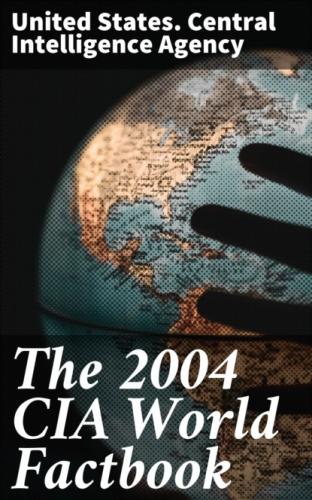Infant mortality rate:
total: 64.32 deaths/1,000 live births
female: 63.16 deaths/1,000 live births (2004 est.)
male: 65.41 deaths/1,000 live births
Life expectancy at birth:
total population: 61.71 years
male: 61.8 years
female: 61.61 years (2004 est.)
Total fertility rate:
3.15 children born/woman (2004 est.)
HIV/AIDS - adult prevalence rate:
less than 0.1% (2001 est.)
HIV/AIDS - people living with HIV/AIDS:
13,000 (2001 est.)
HIV/AIDS - deaths:
650 (2001 est.)
Nationality:
noun: Bangladeshi(s)
adjective: Bangladeshi
Ethnic groups:
Bengali 98%, tribal groups, non-Bengali Muslims (1998)
Religions:
Muslim 83%, Hindu 16%, other 1% (1998)
Languages:
Bangla (official, also known as Bengali), English
Literacy:
definition: age 15 and over can read and write
total population: 43.1%
male: 53.9%
female: 31.8% (2003 est.)
Government Bangladesh
Country name:
conventional long form: People's Republic of Bangladesh
conventional short form: Bangladesh
former: East Pakistan
Government type:
parliamentary democracy
Capital:
Dhaka
Administrative divisions:
6 divisions; Barisal, Chittagong, Dhaka, Khulna, Rajshahi, and
Sylhet
Independence:
16 December 1971 (from West Pakistan); note - 26 March 1971 is the
date of independence from West Pakistan, 16 December 1971 is known
as Victory Day and commemorates the official creation of the state
of Bangladesh
National holiday:
Independence Day, 26 March (1971); note - 26 March 1971 is the date
of independence from West Pakistan, 16 December 1971 is Victory Day
and commemorates the official creation of the state of Bangladesh
Constitution:
4 November 1972, effective 16 December 1972, suspended following
coup of 24 March 1982, restored 10 November 1986, amended many times
Legal system:
based on English common law
Suffrage:
18 years of age; universal
Executive branch:
chief of state: President Iajuddin AHMED (since 6 September 2002);
note - the president's duties are normally ceremonial, but with the
13th amendment to the constitution ("Caretaker Government
Amendment"), the president's role becomes significant at times when
Parliament is dissolved and a caretaker government is installed - at
presidential direction - to supervise the elections
head of government: Prime Minister Khaleda ZIA (since 10 October
2001)
cabinet: Cabinet selected by the prime minister and appointed by the
president
elections: president elected by National Parliament for a five-year
term; election scheduled for 16 September 2002 was not held since
Iajuddin AHMED was the only presidential candidate; he was sworn in
on 6 September 2002 (next election to be held by NA 2007); following
legislative elections, the leader of the party that wins the most
seats is usually appointed prime minister by the president
election results: Iajuddin AHMED declared by the Election Commission
elected unopposed as president; percent of National Parliament vote
- NA
Legislative branch:
unicameral National Parliament or Jatiya Sangsad; 300 seats elected
by popular vote from single territorial constituencies (the
constitutional amendment reserving 30 seats for women over and above
the 300 regular parliament seats expired in May 2001); members serve
five-year terms
elections: last held 1 October 2001 (next to be held before October
2006)
election results: percent of vote by party - BNP and alliance
partners 47%, AL 40%; seats by party - BNP 195, AL 58, JI 17, JP
(Ershad faction) 14, IOJ 3, JP (Naziur) 4, other 9; note - the
election of October 2001 brought a majority BNP government aligned
with three other smaller parties - Jamaat-i-Islami, Islami Oikya
Jote, and Jatiya Party (Manzur)
Judicial branch:
Supreme Court (the chief justices and other judges are appointed by
the president)
Political parties and leaders:
Awami League or AL [Sheikh HASINA]; Bangladesh Communist Party or
BCP [Saifuddin Ahmed MANIK]; Bangladesh Nationalist Party or BNP
[Khaleda ZIA, chairperson]; Islami Oikya Jote or IOJ [Mufti Fazlul
Haq AMINI]; Jamaat-e-Islami or JI [Motiur Rahman NIZAMI]; Jatiya
Party or JP (Ershad faction) [Hussain Mohammad ERSHAD]; Jatiya Party
(Manzur faction) [Naziur Rahman MANZUR]
Political pressure groups and leaders:
NA
International organization participation:
AsDB, C, CP, FAO, G-77, IAEA, IBRD, ICAO, ICC, ICCt (signatory),
ICFTU, ICRM, IDA, IDB, IFAD, IFC, IFRCS, IHO, ILO, IMF, IMO,
Interpol, IOC, IOM, ISO, ITU, MIGA, MINURSO, MONUC, NAM, OIC, ONUB,
OPCW, SAARC, SACEP, UN, UNAMSIL, UNCTAD, UNESCO, UNHCR, UNIDO,
UNMEE, UNMIK, UNMIL, UNMISET, UNOCI, UNOMIG, UPU, WCL, WCO, WFTU,
WHO, WIPO, WMO, WToO, WTO
Diplomatic representation in the US:
chief of mission: Ambassador Syed Hasan AHMAD
consulate(s) general: Los Angeles and New York
FAX: [1] (202) 244–5366
telephone: [1] (202) 244–0183
chancery: 3510 International Drive
